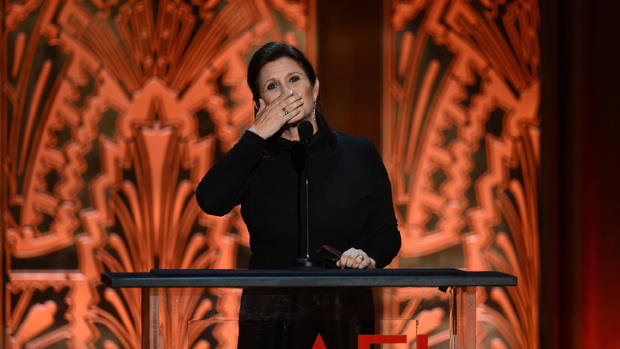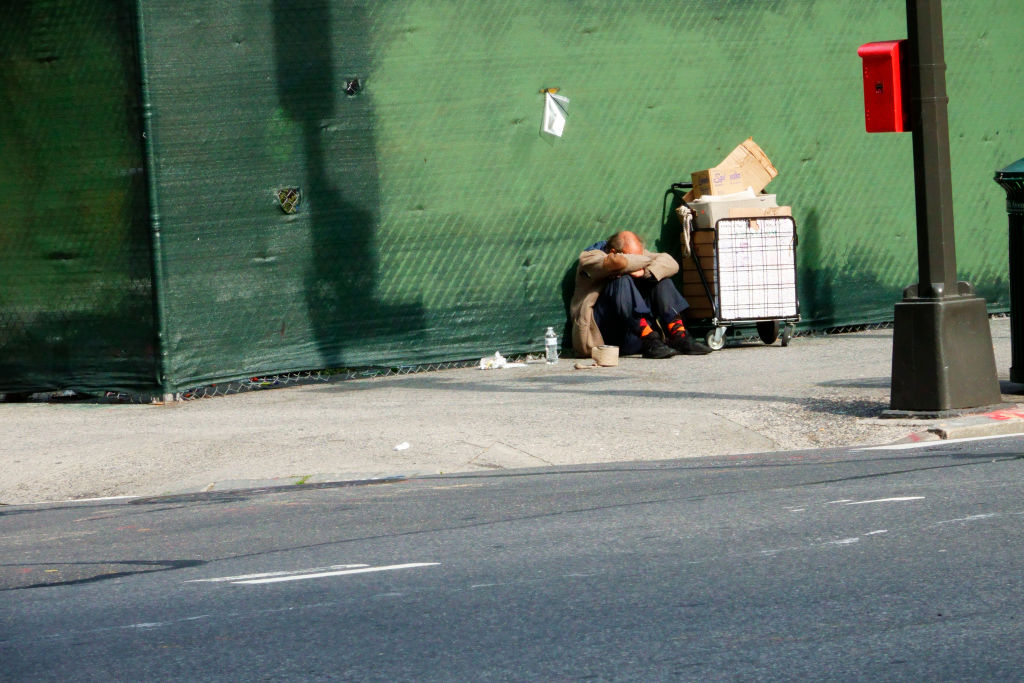Carrie Fisher's honesty about bipolar disorder, addiction helped fight stigma
The world lost more than a smart, funny, beloved actress and writer when Carrie Fisher died Tuesday; it also lost a powerful advocate for mental health.
Fisher’s death after suffering a cardiac emergency Friday drew an outpouring of comments lauding her courageous openness about her personal struggle with bipolar disorder and addiction to drugs and alcohol.
Diagnosed as bipolar in her twenties, Fisher later wrote and spoke frequently about her experiences.
In her 2008 memoir “Wishful Drinking,” she wrote:
One of the things that baffles me (and there are quite a few) is how there can be so much lingering stigma with regards to mental illness, specifically bipolar disorder. In my opinion, living with manic depression takes a tremendous amount of balls. Not unlike a tour of duty in Afghanistan (though the bombs and bullets, in this case, come from the inside). At times, being bipolar can be an all-consuming challenge, requiring a lot of stamina and even more courage, so if you’re living with this illness and functioning at all, it’s something to be proud of, not ashamed of.
When WebMD asked her how it felt to be a “poster child” for bipolar disorder, she replied: “Well, I am hoping to get the centerfold in Psychology Today. It’s a combination of everything. It was out there, anyway; I wanted my version of it out there. Now, it seems every show I watch there’s always someone bipolar in it! It’s going through the vernacular like ‘May the force be with you’ did. But I define it, rather than it defining me.”
In the same interview, about six years ago, Fisher said she tended toward mania more often, but depression became a bigger issue as she got older.
She offered advice to others struggling with mental illness in a 2013 interview with Sarasota’s Herald Tribune: “Stay afraid, but do it anyway. What’s important is the action. You don’t have to wait to be confident. Just do it and eventually the confidence will follow.”
And when it came to dealing with addiction, she told Charlie Rose in 2009: “I’m proud of myself that I’ve been able to get through this stuff, and I’ve been able to — I can’t overcome it, but I can use it. ... I have problems, problems don’t have me.”
Those who work in the mental health field praised her bravery and the impact it had on others.
“I think Carrie Fisher really was very generous and gracious to make her personal struggles with bipolar disorder in the public light, to try and destigmatize mental illness,” Dr. Victor Fornari, a psychiatrist at Zucker Hillside Hospital, in Glen Oaks, New York, and Cohen Children’s Medical Center, in New Hyde Park, told CBS News.
“I was impressed with her as a person and really appreciated and respected her open spirit, in the same way Betty Ford opened up about her alcoholism,” he added.
On social media, many others added their words of gratitude and respect:
Comedian Margaret Cho tweeted, “We just lost a great ally for mental health and addiction. Be strong, be as strong as she’d want you to be. Rest in paradise @carrieffisher.”
Samantha Shannon, author of “The Bone Season” series, tweeted, “I can’t describe my grief at Carrie Fisher’s death. She was not only multi-talented, but unashamedly forthright about her mental illness.”
In a second tweet, she added, “Seeing her courage helped me a great deal when I was in the grip of anxiety, and thought I would never find a way out.”
While Fisher was prolific in writing and talking about her struggles with addiction and bipolar disorder – a self-described over-sharer — her one-line Twitter bio speaks volumes about how she viewed her health challenges:
“There’s no room for demons when you’re self possessed.”






